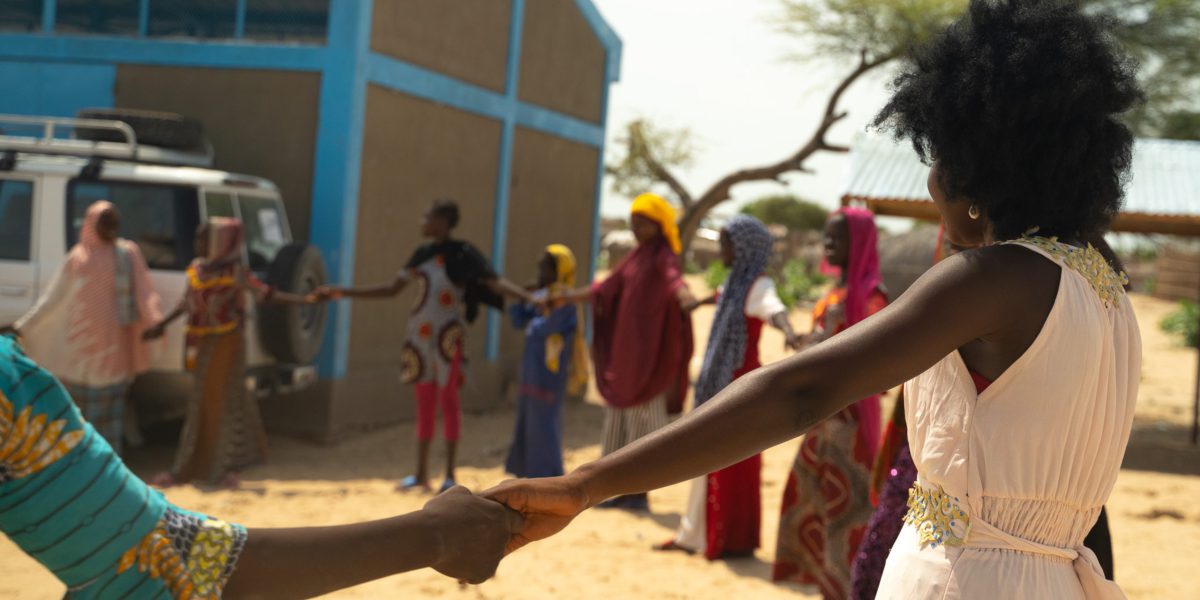
Read the piece on the World-Herald website here. Subscription required.
JRS/USA President Kelly Ryan:
Nebraska is a leader in welcoming refugees so they can rebuild their lives
June 20 is World Refugee Day, designated by the United Nations to commemorate the experience, strength, talents and resilience of refugees.
Even before a new Pew Research report showed Nebraska led the nation in refugee resettlement per capita, the state had been a leader — resettling the highest number of refugees per capita for at least the past 11 years. Unlike other states, Nebraska even has its own refugee resettlement program. It speaks highly of Nebraskans that the state has been so welcoming to people in need of a welcome.
Still, misunderstandings persist. Refugee? Asylum-seeker? Immigrant? Not the same. And unfortunately, there is more heat than light around these topics. What better time than World Refugee Day to talk about what it means to be a refugee — and why it matters that Nebraskans continue to welcome displaced people.
Refugee and asylum-seeker statuses are defined and protected in both U.S. and international law and conferred upon people fleeing homelands plagued by conflict, organized crime, and/or rampant human rights abuses. They exercise the fundamental right to seek the protection of another country when their own can no longer protect them. They are not “illegal immigrants.” U.S. law permits them to make a claim, and if found to need protection, to remain and integrate into the country. All must pass rigorous security checks. Nebraska is full of successful refugees who were resettled from abroad or granted asylum.
Throughout the globe, more than a hundred million people have fled dangerous situations in their homelands. People don’t leave everything behind without good reason. Think about it: You’re a professional or tradesperson with a family and a community, hobbies, a social network, unique life experiences – but things have gotten very dangerous. You’re now a target of violence and persecution due to your race, religion, nationality, political opinion, or membership in a particular group. What do you do?
Unfortunately, even those who make it to the U.S. southern border remain in dangerous situations when they try to present themselves in what has become a virtual lottery. Asylum seekers must use an automated system, the CBP One app, to secure an appointment, which assumes they have a smartphone (that hasn’t been stolen), access to wifi, and a place to stay while awaiting an electronic reply. Even for those who do, there are merely 1,450 appointments each day, distributed among eight ports of entry – woefully inadequate. People are suffering and even dying as they wait months to present their initial claim. Then, they may wait multiple years to make their case before an immigration judge in a huge unaddressed backlog of claims. Yet, instead of improving an already broken process, earlier this month, the Biden Administration took an executive action to put an arbitrary cap on the number of asylum-seekers allowed to cross into the country.
The U.S. has offered a new home and new opportunities to more than 3 million refugees since 1975. They are our fellow Americans who have paid taxes, created businesses, expanded our cuisine, raised families, become our friends, and developed roots. Shutting the door to those in need of protection is not the answer.
The answer lies in system reform, investment, effective partnerships with other countries, and expanded legal immigration pathways that benefit everyone involved. It also lies in support for faith-based nonprofits and civil society organizations that accompany and welcome newcomers and provide physical care, mental health support, education and training, housing, and more, and have been doing so effectively for many years.
This World Refugee Day, let’s commit to solving the challenges of our refugee and asylum system and addressing border surges. No more scapegoating people for problems they didn’t cause in homes they didn’t want to leave . Refugees need and want a chance to rebuild their lives. Nebraskans have a celebrated history of solidarity helping refugees belong – and other states should follow its example.
—-
Kelly Ryan is president of Jesuit Refugee Service/USA, a 501(c)(3) organization that serves forcibly displaced people through detention chaplaincy, legal assistance, and mental health & psychosocial support. Ms. Ryan is a two-time presidential appointee with 30+ years of experience in refugee and asylum law, migration management, and human rights law and policy.




